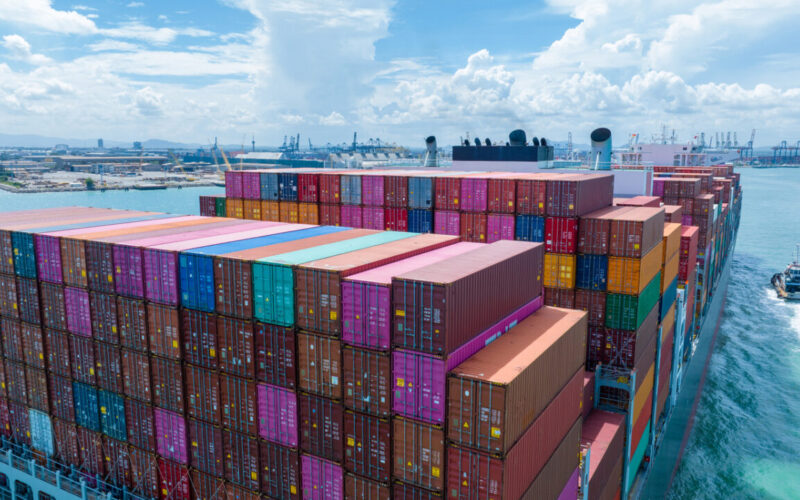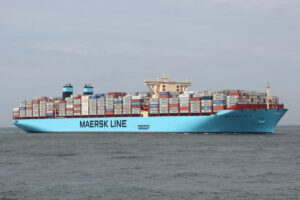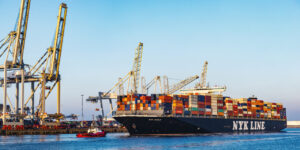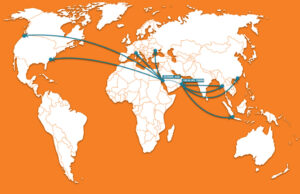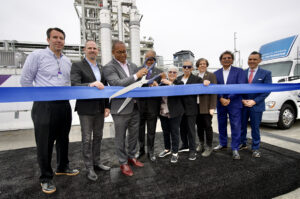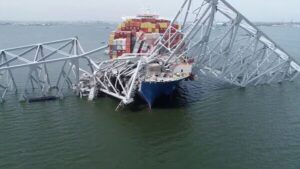The US Federal Maritime Commission (FMC) has held an informal public hearing to investigate the impact of assaults on merchant vessels in the Red Sea and Gulf of Aden.
Commissioner Carl Bentzel voiced his concerns about the security of access through both the Suez and Panama Canal in his opening statement. Additionally, in the wake of the violence in and around the Red Sea, Bentzel warned of the severe international economic consequences to follow.
Bentzel explained that the US is yet to fully recover from the aftershock of the pandemic-induced supply chain disruption, in which imported container shipping spiked 30 per cent. This surge effectively led to congestion which subsequently suppressed the transportation of critical supplies to various sectors, according to Bentzel.
“In my view, the impacts of inflation were largely caused by the delays in shipping. I believe that most Americans still do not fully understand the level of importance that international ocean shipping plays to our economy,” Bentzel stated.
“Ocean shipping moves over 90 per cent of our international trade. Reductions in ocean shipping cannot be overcome, aviation alternatives cost 8-10 per cent more and with pricing and volume limitations cannot do more than supplement maritime trade – as they used to say, ‘mostly reserved for fine chocolates, perfume and tulips’.”
With the ramifications of the pandemic as a reference point, Bentzel forewarned of the debilitating impact carried with the closures and restrictions on two of the major global maritime gateways.
The trade disruptions triggered by the drought in the Panama Canal have materialised to an almost 50 per cent reduction in total transit available, while the carrying capacity of vessels able to transit has been stifled by 5-15 per cent due to low water.
“There is a lot at stake as we consider the impacts of what is approaching to be the closure of one of the major maritime superhighways and 50 per cent reductions of the other.”
Despite the uncertain road ahead, cargo movement remains steady, with surplus capacity available at marine terminals. Bentzel added that equipment providers and intermodal rail and trucking services are aware of the impending challenges as ocean carriers have worked to adapt to the situation at hand.
Shipping companies have incoming orders for new vessels to help alleviate the constraints on shipping capacity as liners will have to impose diversions due to the ongoing circumstances affecting both the Panama and Suez Canals.
“We also have a little bit of time, as the implications of ocean shipping events tend to lag behind cargo put ashore today, reflecting shipping conditions that existed four or five weeks earlier when that ship departed a foreign port.
“However, make no mistake about it, in two-or three-months, shipping conditions will have changed,” Bentzel stressed.
READ: FMC calls public hearing on Red Sea shipping conditions
Speaking on the economic impact of the disrupted canals, Bentzel continued: “The longer these impacts linger, the greater the economic impact. Already we are hearing of factory closures of automobile manufacturing in Europe as a result of shipping related supply chain disruption, and we are just in the beginning of this challenge.”
Despite the significant economic consequences, safeguarding the security of dockworkers and ships traversing these implicated regions remains the priority of shipowners. Nevertheless, Bentzel remained firm on confronting any gross attempts from carriers to leverage the current situation.
“That said, the FMC has the duty and requirement to protect the public from unreasonable shipping practices, and while I understand the need for price increases to reflect additional shipping operational costs caused by the Trans-Oceanic Canal crisis, the FMC may be called upon to question the legitimacy of new charges or other shipping practices.
“Congress recently empowered the Commission with the passage of the Ocean Shipping Reform Act of 2022, and in addition to new regulatory authorities, we have been provided additional funding for enforcement resources to protect the shipping public. So, I feel that we are in a good position to ensure that we can police against potential market abuse.”
“Accordingly, I am evaluating the potential applications of either the provisions of section 19 of the Merchant Marine Act, 1920 or the Foreign Shipping Practices Act to assess whether we could initiate an investigation to determine whether the actions in Yemen cause ‘unfavorable conditions to shipping in the foreign commerce.
“Because of the general level of regional instability there could be challenges to the application of the law, however, I believe that the international importance of protection of navigational freedom provides an overriding impetus to evaluate a potential investigation.”
During the hearing, the FMC heard from 10 participants, representing the viewpoints of shippers, ocean carriers, and ports.

